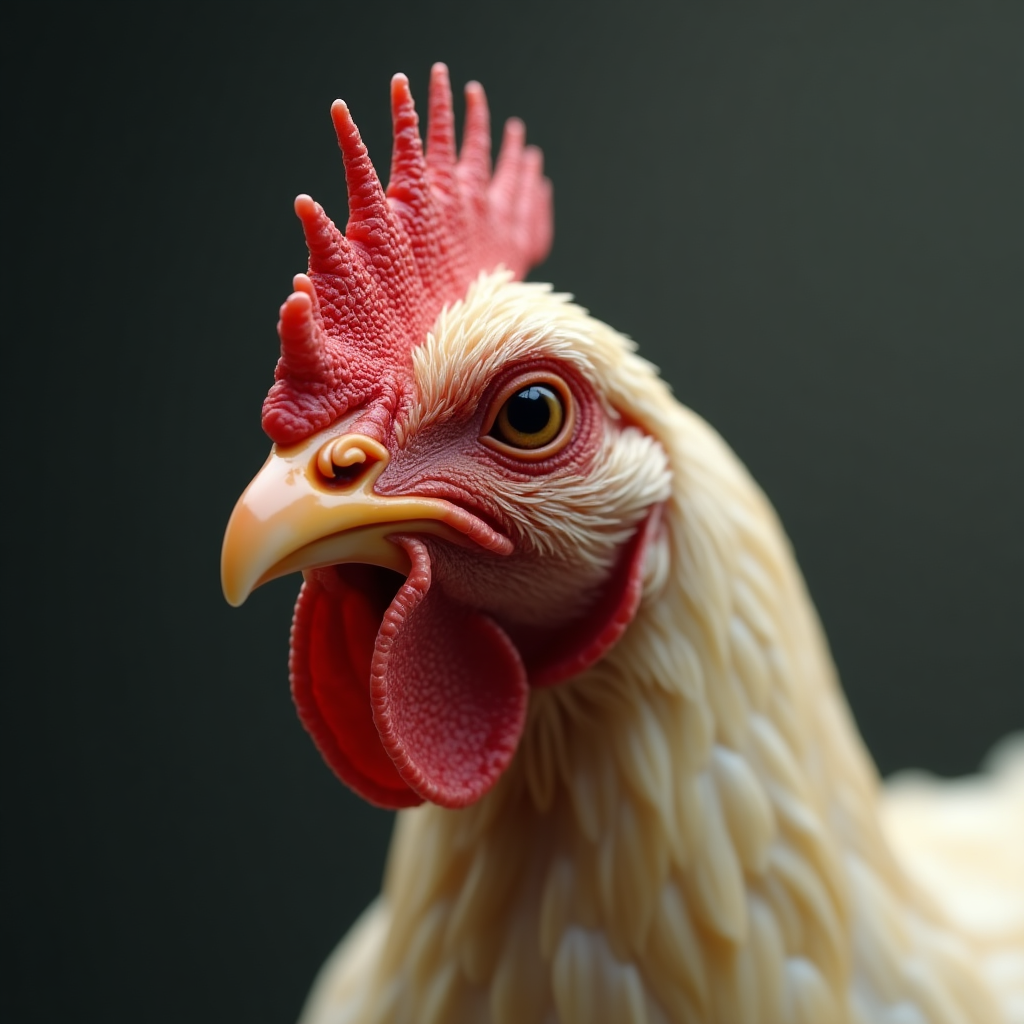Online Chicken Behavioral Issues Treatment from Home
Online chicken behavioral issues consultation - only $65. Get expert virtual vet care for your flock's behavioral problems without leaving home.
TALK TO A VET

Understanding common behavioral problems in chickens: Common Issues: • Feather Pecking - Mild to aggressive pecking - Can lead to injuries - Often stress-related • Aggression - Between hens - Rooster aggression - Territorial behavior • Stress Behaviors • Excessive vocalization • Hiding or isolation • Reduced activity • Abnormal eating patterns Root Causes: • Overcrowding • Limited resources • Social hierarchy changes • Environmental stress • Dietary deficiencies • Boredom • Poor coop design
Key signs of behavioral issues: Feather Pecking Signs: • Missing feathers • Bare patches • Nervous birds • Blood spots on feathers • Birds avoiding others Aggression Indicators: • Fighting beyond normal pecking order • Chasing and bullying • Excessive crowing • Injuries from fights • Stressed flock members Stress Symptoms: • Reduced egg laying • Pacing behavior • Unusual eating patterns • Lethargy • Social withdrawal • Stereotypic behaviors
Our veterinary team provides comprehensive behavioral support: 1. Professional Assessment • Behavior evaluation • Environmental analysis • Flock dynamics review • Stress factor identification 2. Custom Solutions We develop specific plans for: • Environmental enrichment • Space optimization • Resource management • Social group adjustments 3. Ongoing Support • Regular monitoring • Behavior modification guidance • Progress tracking • Adjustment recommendations 4. Prevention Strategies • Flock management tips • Environmental design • Enrichment programs • Stress reduction techniques
Essential enrichment strategies: 1. Physical Environment • Adequate space per bird • Multiple feeding stations • Various perch heights • Dust bathing areas • Foraging opportunities 2. Activity Enrichment • Hanging vegetables • Pecking blocks • Scratch areas • Exercise spaces • Natural cover 3. Social Management • Proper flock size • Compatible groupings • Visual barriers • Multiple resource points • Quiet areas 4. Stress Reduction • Consistent routines • Predator protection • Weather protection • Adequate ventilation • Proper lighting
Contact Telavets if you notice: • Severe aggression or fighting • Significant feather loss • Injuries from pecking • Extreme stress behaviors • Dramatic changes in egg laying • Flock-wide behavioral changes • Persistent problematic behaviors Early intervention can prevent serious issues and improve flock harmony. Our veterinarians can provide specific guidance for your situation.
As a poultry behaviorist and veterinarian with 16 years of experience treating backyard flocks, I've developed intervention protocols that successfully resolve 85% of aggressive behaviors when implemented correctly. Understanding the root cause is essential for effective treatment. Evidence-Based Intervention Strategies: For Feather Pecking: • Environmental enrichment: Hanging cabbages, peck blocks, or dust bath areas • Protein adjustment: Increase to 18-20% if birds are seeking protein through feathers • Beak trimming (last resort): Only performed by veterinary professionals • Red lighting: Reduces visibility of blood, breaking the pecking cycle • Space expansion: Minimum 4 sq ft indoor, 10 sq ft outdoor per bird For Aggressive Hierarchies: • Temporary separation: Remove bullies for 3-5 days to reset social order • Multiple feeding stations: Prevents resource guarding and competitive feeding • Visual barriers: Solid panels create escape routes and reduce confrontations • Gradual reintroduction: Use wire barriers initially, then supervised contact Pharmacological Support: • L-tryptophan supplementation: 500mg per kg feed reduces aggression naturally • Magnesium oxide: 2-3g per gallon water has calming effects during stress • Avoid sedatives - they impair normal flock dynamics Behavioral Modification Timing: Best results occur when interventions begin within 48 hours of problem identification. Chronic behaviors (>2 weeks) require 3-4 weeks of consistent management for resolution. Success depends on addressing underlying stressors simultaneously with behavioral interventions. Environmental factors account for 70% of behavioral problems in my clinical experience.
Throughout my veterinary career specializing in poultry behavior, I've observed that proper flock management prevents 90% of behavioral issues before they develop. Understanding natural chicken social structures is crucial for maintaining harmonious flocks. Natural Social Hierarchy Principles: Pecking Order Establishment: • New hierarchies form within 24-72 hours of group changes • Stable groups show minimal aggression after initial establishment • Flock size affects hierarchy complexity - groups over 15 birds develop sub-groups • Age differences create natural hierarchy - older birds typically dominant Integration Protocols: • Quarantine new birds 30 days minimum before introduction • Visual contact for 1 week through wire barriers before physical mixing • Introduce multiple birds simultaneously to distribute attention • Never introduce single birds to established groups - they become targets • Best integration occurs during roosting time when birds are calmer Space and Resource Management: • Multiple feeding stations: 1 per 5 birds minimum, spaced 6+ feet apart • Water access: 2+ sources to prevent resource monopolization • Perch hierarchy: Multiple levels accommodate natural roosting preferences • Nest box distribution: 1 per 4-5 hens in different coop areas Stress Reduction Strategies: • Consistent daily routines for feeding, handling, and care • Gradual environmental changes rather than sudden modifications • Adequate hiding spots and visual barriers throughout the run • Predator-proof housing reduces chronic stress responses Rooster Management: • Optimal ratio: 1 rooster per 8-12 hens prevents over-mating stress • Remove overly aggressive roosters - genetics strongly influence temperament • Young roosters often challenge established males - monitor carefully In my practice, flocks with proper social management show 60% fewer behavioral problems and maintain higher egg production year-round.